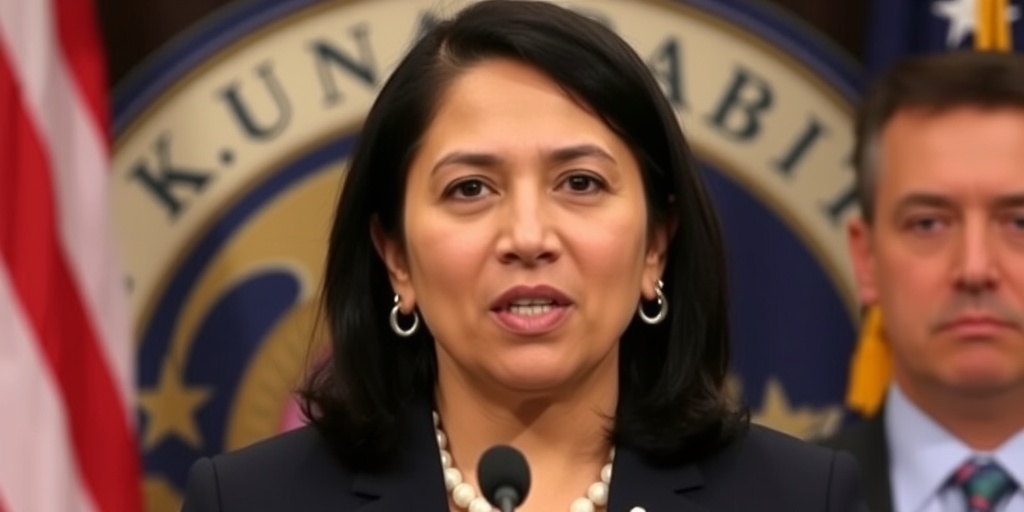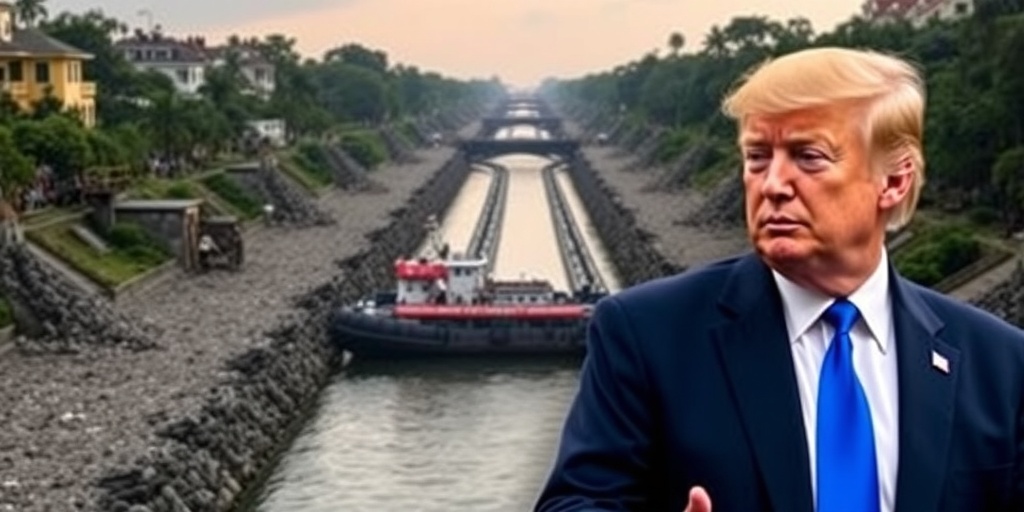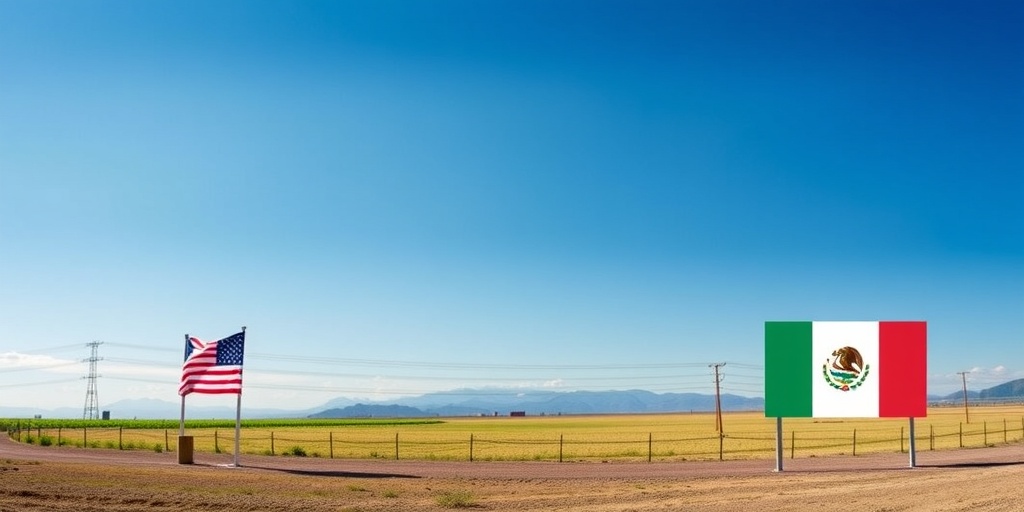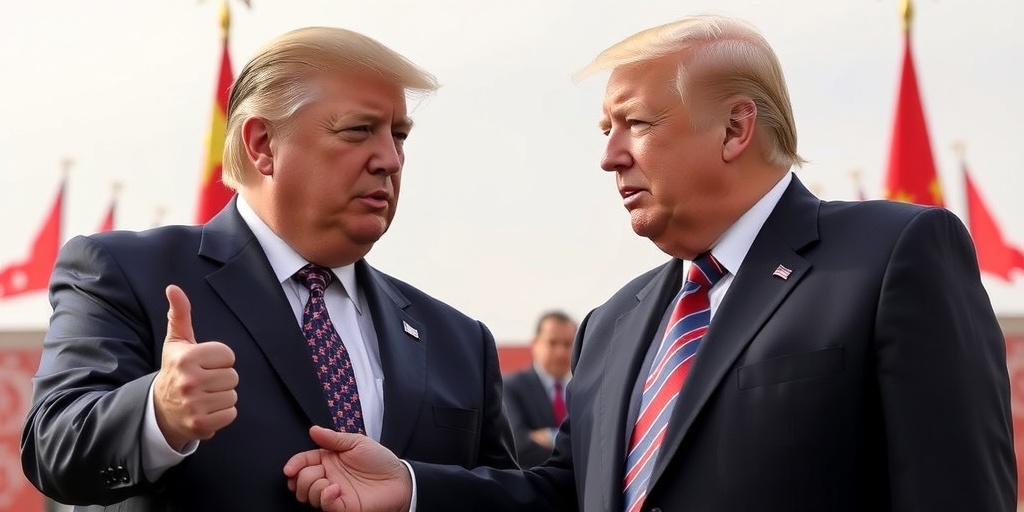Now Reading: Trump Proposes Renewed Nuclear Talks to Iran’s Supreme Leader
-
01
Trump Proposes Renewed Nuclear Talks to Iran’s Supreme Leader
Trump Proposes Renewed Nuclear Talks to Iran’s Supreme Leader
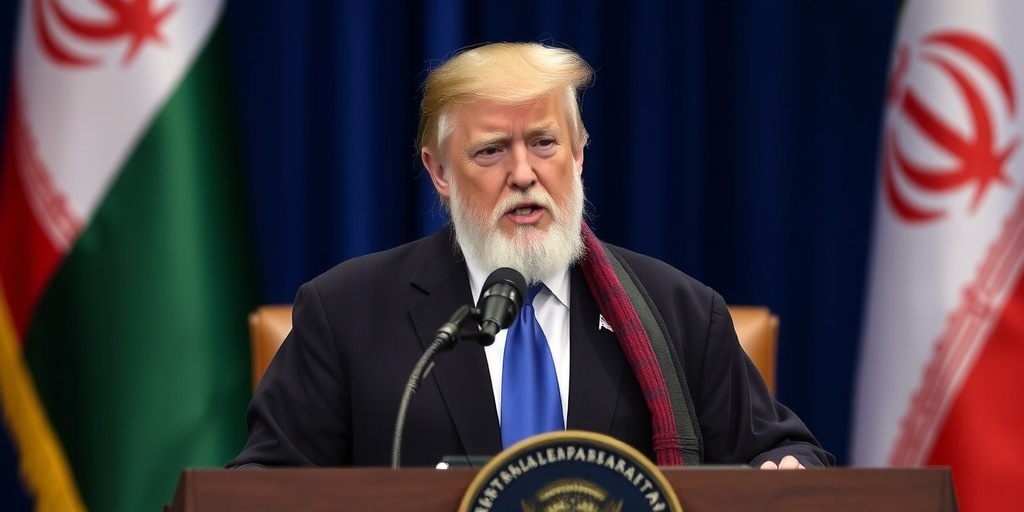
Trump Reaches Out to Iran’s Supreme Leader, Offers to Reopen Nuclear Negotiations Amid Rising Tensions
In a significant move, President Donald Trump announced on Friday his intention to reach out to Iran regarding its increasingly advanced nuclear program. Speaking from the Oval Office, Trump revealed that he had sent a letter to Iran’s supreme leader, Ayatollah Ali Khamenei, proposing the reopening of negotiations. However, he issued a stark warning: Iran must choose between curbing its nuclear ambitions or facing potential military action.
During his address to reporters, Trump emphasized the urgency of the situation, highlighting that Iran possesses enough near-bomb-grade fuel to construct approximately six nuclear weapons. He stated, “We’re down to final strokes with Iran. We can’t let them have a nuclear weapon,” underscoring his administration’s priorities amid escalating geopolitical tensions.
Trump’s comments echoed sentiments expressed during his first term, particularly after his controversial decision in 2018 to withdraw from the Iran nuclear deal negotiated under the Obama administration. Although he proposed negotiations then, they never materialized, and subsequent efforts by President Joe Biden’s administration to revive the agreement ultimately collapsed.
The backdrop to Trump’s renewed outreach is a dramatically evolving geopolitical landscape. The Justice Department has accused Iran’s Islamic Revolutionary Guards Corps of plotting to assassinate Trump last year. This confrontation has fueled discussions about the urgency of addressing Iran’s nuclear capabilities. Additionally, military strategists are becoming increasingly concerned as Israeli forces reportedly dismantled much of the air defense infrastructure protecting Iranian nuclear sites in October, leaving these facilities vulnerable to potential strikes.
As Trump made this announcement, the Israeli officials were reportedly considering whether to undertake a military operation against Iranian nuclear sites, viewing the current conditions as a uniquely opportune moment. Nevertheless, American military experts believe that the success of such operations could hinge on Israeli access to U.S. military assets and support.
In Iran, the internal political landscape is complex as officials engage in vigorous debates regarding how to respond to Trump’s overtures. Moderates and reformists, including President Masoud Pezeshkian, campaigned on platforms advocating for negotiations with Washington in hopes of alleviating sanctions that have crippled the Iranian economy. However, despite the pressure for dialogue from certain political factions, Ayatollah Khamenei has made it clear that he remains opposed to negotiations, especially following Trump’s enforcement of a “maximum pressure” policy that increased sanctions on Iran.
Pezeshkian publicly acknowledged the limitations of his power in Iran’s political structure, asserting that while he favors negotiations, he must defer to Khamenei’s decisions. “My position has been and will remain that I believe in negotiations,” he stated, “but now we have to follow the parameters set by the supreme leader.”
This diplomatic engagement—though constantly hindered by past grievances—stands at a critical juncture. The ongoing debates within Iran regarding potential negotiations signal a divide between hardline and moderate factions. While Khamenei’s distrust of the U.S. remains a significant hurdle, there is also acknowledgment among some Iranian leaders of the dire need to resolve the soaring economic issues exacerbated by international sanctions.
In his Fox Business interview, Trump described the essence of his letter to Khamenei as one of hope for negotiation, suggesting it would benefit Iran economically. “If we have to go in militarily, it’s going to be a terrible thing for them,” he warned, reiterating his administration’s resolve to prevent Iran from acquiring nuclear weapons.
Experts on Iranian affairs note that any Iranian response will depend greatly on the tone of Trump’s approach. Sasan Karimi, a political analyst and former deputy to Iran’s foreign minister, remarked that a threatening letter would evoke a negative response, while a respectful and constructive message could yield positive outcomes.
As tensions persist, the implications of Trump’s renewed offer to negotiate cannot be overstated. The precarious situation whereby Iran is reportedly enriching uranium at 60 percent purity has raised alarms over its nuclear ambitions. American intelligence reports suggest that Iran might be considering a swift approach to developing nuclear weapons should its leadership deem it necessary.
With Trump’s strategic attempt to thaw relations with Iran, the outcome remains uncertain. As both nations navigate this fraught terrain, the potential for dialogue—or conflict—hangs in a delicate balance, shaped by historical grievances, current pressures, and a mutual desire to avoid escalation. The stakes are extraordinarily high, and what unfolds from this moment could have lasting implications not only for U.S.-Iran relations but also for regional and global security.
Stay Informed With the Latest & Most Important News
Previous Post
Next Post
-
 01New technology breakthrough has everyone talking right now
01New technology breakthrough has everyone talking right now -
 02Unbelievable life hack everyone needs to try today
02Unbelievable life hack everyone needs to try today -
 03Fascinating discovery found buried deep beneath the ocean
03Fascinating discovery found buried deep beneath the ocean -
 04Man invents genius device that solves everyday problems
04Man invents genius device that solves everyday problems -
 05Shocking discovery that changes what we know forever
05Shocking discovery that changes what we know forever -
 06Internet goes wild over celebrity’s unexpected fashion choice
06Internet goes wild over celebrity’s unexpected fashion choice -
 07Rare animal sighting stuns scientists and wildlife lovers
07Rare animal sighting stuns scientists and wildlife lovers













